Interview with Dr Ruth Heidrich
VeganOrigo: When and how did you meet veganism?
Dr Ruth Heidrich: Back in 1982 at the age of 47, I was running marathons and applying what I’d learned about diet from my college-level nutrition courses. I thought I was as healthy as I could be, so you might imagine how upset I was to discover quite a large lump in my breast. I got right in to see a doctor who ordered a mammogram. This came back negative, (a false negative, as it turned out), so he told me not to worry, but just to be sure and because it was so large, they’d do an excisional biopsy. This means cutting the whole lump out and sending it to Pathology. The diagnosis came back, Infiltrating Ductal Carcinoma, cancer! I was totally shocked at this, thinking that surely there had been a mistake, that this couldn’t be happening to me! Further tests came back, revealing that it was Stage 4, having spread to my bones, liver and one lung. I was more shocked at this worse news, then totally devastated as it hit me, that I could soon die at only 47 years of age!
I was transferred to Oncology for treatment, chemo/radiation/hormone blockers. While still stunned by what was happening to me, I came across a notice in the newspaper about a Dr. John McDougall, looking for breast cancer patients to participate in a diet-related reseach study. I immediately signed up to be a subject in his research, thinking I’d prove that it couldn’t be what I was so sure was my ”healthy” diet, having given up red meat in favor of just chicken and fish and switching to low-fat powdered milk.
Dr. McDougall told me that chicken, fish, and all dairy products were just as harmful, and that in order to particpate in his research, I had to refuse all standard cancer treatments and follow a diet of 100% plant foods -- a low-fat vegan diet -- as my only treatment. This way if I survived, we’d know that it was the diet that saved my life and not any of the cancer treatments. I wanted to be a part of the research to tackle the scourge of cancer, so I signed up and went vegan within two hours!
Within a very short time, all the cancer symptoms disappeared, and I kept up with my running to help me handle the anxiety. I was surprised to notice that my running times got faster. Then I discovered triathlons and added biking and swimming, thinking maybe more exercise would help. When it became obvious to me that I was now on the diet I should have been on all along, I decided to try to demonstrate to all how powerful this diet was by entering and completing the Ironman Triathlon, a 2.4 mile swim, a 112-mile bike, and then you run a 26.2 marathon – and it has to all be done in under 17 hours! It was a challenge to be sure as I had gone through tremendous stress dealing with this possible death sentence. Additionally, I was one of the oldest competitors at close to 50 years of age, competing with 20- and 30-year-olds, but I crossed the finish line triumphantly in 14 hours, 49 minutes!
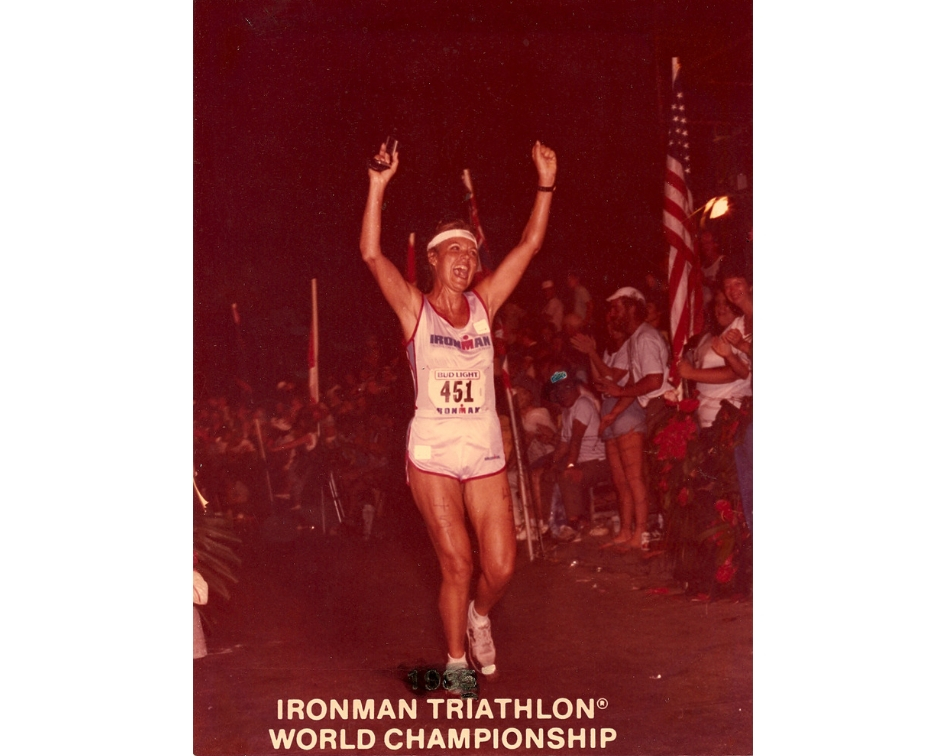
V: What has changed in your life since then?
Dr R: I’ve continued to be cancer-free and, because of the success I had in both beating cancer and setting race records with my faster running, Dr. McDougall encouraged me to write a book to help other breast cancer patients, thus, A Race For Life, my first book came about and I accidentally became an author. Because I was asked to speak at conferences, give lectures to college classes, and support groups, I also became a speaker and launched my mission to promote this healthy diet along with a healthy active lifestyle.
V: How sport is connected to your life?
Dr R: I’ve always said that exercise is very important to our health, but to keep it up, it has to be fun. The way I found to keep exercise fun is to enter races in running, biking or swimming. We always need a goal and one fun goal is to sign up for a race, put some money down so you’re invested, and then do the necessary training to do well in that race. This has been what has kept me and others motivated to maintain fitness for many years now.
V: What diet do you follow? How do you put it together?
Dr R: My vegan diet is very simple. I shop primarily in farmers’ markets for all kinds of fruits and vegetables and keep preparation fast and easy. Putting it together usually consists of washing the fresh fruits and veggies, cutting them up, and throwing them together in a very large bowl. (I do eat a lot!)
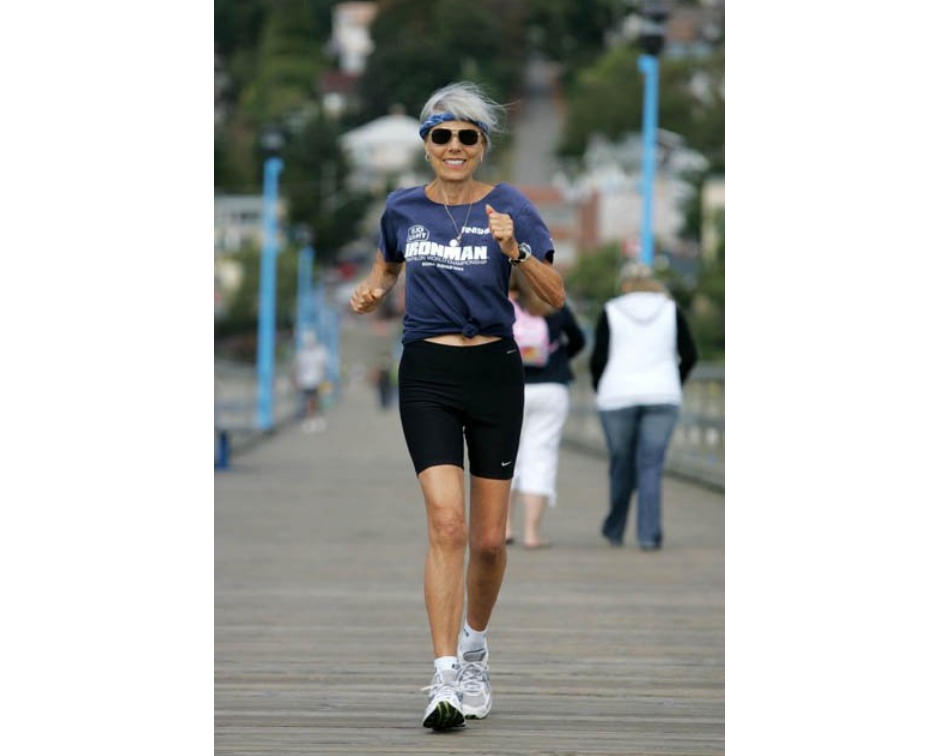
V: What sport do you still do?
Dr R: I do a daily mini-triathlon of anywhere from two to three hours and lift weights three times a week. These are the goals I set for myself to maintain fitness and try to slow down the aging process. Then, if anything comes up and I miss a work-out, I’m still happy with what my totals are for the week.
V: Which of your achievments is the dearest to you?
Dr R: I would like to mention two categories of achievement, mental as well as physical. Mentally, are the studies I undertook in the fields of nutriton and exercise physiology leading to my earning a Ph. D. in Health Management. Physically, winning gold medals in the Ironman Triathlon and being sponsored to compete not only in the U.S. but also in New Zealand and Japan. Both were, by far, the most challenging of all my achievements and what’s amazing to me is that both were my response to that horrible diagnosis of breast cancer.
V: How many marathons and triathlons have you acomplished? Which was the most memorable one?
Dr R: I’ve have completed 67 marathons, six Ironman Triathlons, and over 1,000 races of all distances ranging from 100 meter sprints, to 5Ks, 10Ks, many half-marathons, sprint triathlons, and even a pentathlon where I set a Hawaii State record for the 60-64 year age group. Each event is memorable in its own way, and I have some unique and impressive trophies from some of these races to keep these memories alive.
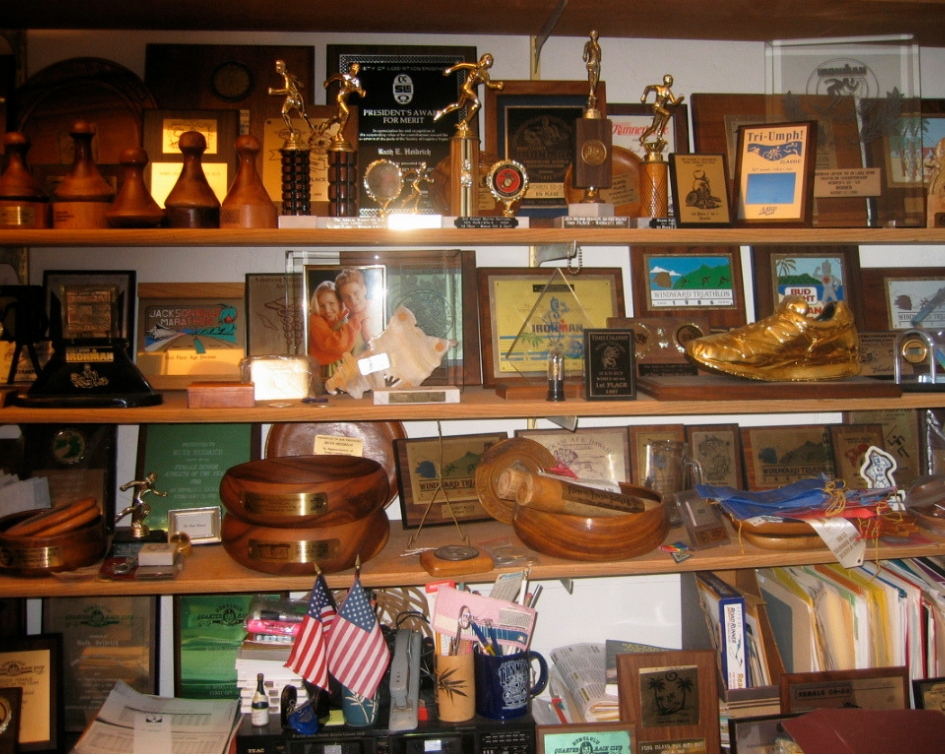
V: How do you prepare yourself for an Ironman? What do you eat during the race?
Dr R: Training in each of the three events is done by gradually extending the distances in a calculated program which builds up endurance. It takes a juggling act to get all three sports going, and I cover this in my books, A Race For Life and Senior Fitness. Fruit is usually provided at each of the aid stations, so this is what I eat, usually bananas and oranges.
V: What advice would you give to people suffering from cancer?
Dr R: I give people who have been diagnosed with cancer the same advice I was given which is to eliminate the cause. In most cases we know that the cause is the animal-based diet. The use of oils is also a contributing factor to disease, and I have not used any oil or eaten any animal products in 36 years.
V: What is your book ”Lifelong Running” about? Who do you recommend it to?
Dr R: As a runner for over 50 years, as one who loves it and has gained so much from it, I cover all of this in this book. There are many myths about running, primarily that it’s bad for your knees but studies show that runners have fewer knee problems than non-runners. I also know that animal protein in the diet can cause autoimmune diseases such as arthritis which affects knees as well as all other joints.
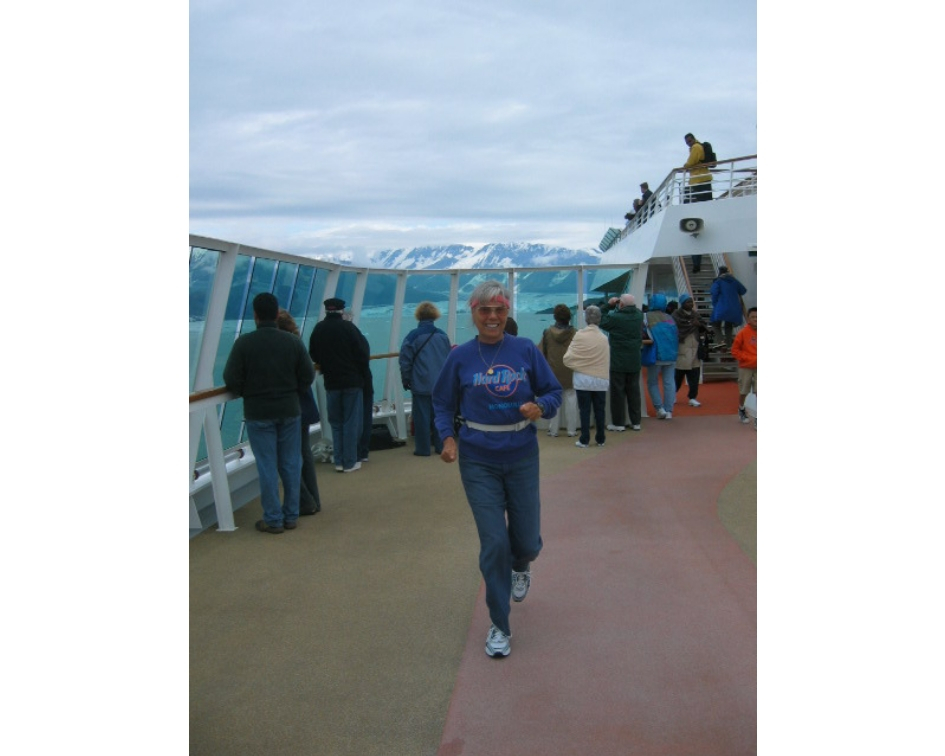
V: One of your other books is ”Senior Fitness”. How can it help people? Who is the target group? Do you help with nutrition, recipes, fitness progam with the book?
Dr R: My target group for ”Senior Fitness” is everyone who finds themselves aging! Those who live in westernized countries start on the course of degenerative diseases such as heart disease, cancer, obesity, hypertension, diabetes, arthritis, osteoporosis, and dementia from an early age. Whether it be seniors in high school and college, turning 40, or finding themselves in nursing homes, almost all can re-gain or maintain their health by following the diet and exercise program I suggest in this book.
V: What is your favourite recipe from your CHEF cookbook?
Dr R: May I give you two of the dishes I enjoy most? I want to demonstrate that we don’t suffer in the least from any deprivation or ”sacrifice” at all!
Red Mushroom Delight
1 c. mushrooms, fresh or canned 1/4 chopped red onion
1/4 chopped red cabbage 1 beet, raw and chopped
1/2” fresh sliced ginger balsamic vinegar to taste
In a square casserole dish, slice the mushrooms to make a layer. Next, slice and chop each of the remaining veggies. Adjust quantities of each of these ingredients to suit your taste. Sprinkle balsamic vinegar over all the top and pop into the microwave for 5 minutes.
Decadent Chocolate Mousse
2 avocados stevia, sweeten to taste
1 c. 100% cocoa powder water, to desired consistency
Halve and peel the avocados. Put all ingredients in a food processor, using the S-blade to blend until creamy, adding water a little at a time, to get desired consistency. Put mixture into serving dishes and chill. If desired, garnish with halved strawberries with green tops left on (they really do taste good!). Serves 4. Beware -- this is a very rich dish!
V: What kind of practical, interesting facts do you share in your newest book on how to improve our health and sexual function for a happier ”us”?
Dr R: Most people have no idea how common erectile dysfunction is, that it can occur in very young men, that it can also occur in women, that ED is an early warning system of a major health crisis, that ED pills are not the answer, and there is a very specific exercise I give in the book that enhances sexual function and enjoyment. Most imortant is that erectile dysfunction can be reversed by the lifestyle program that is in this book now available through my website.
V: How is a plant-based diet connected to our sexual life?
Dr R: How well we function sexually, as well as in every other aspect of our lives is dependent on a good, healthy blood supply and to move it around with effective exercise. Now, you certainly don’t want to prevent or reverse ED and then forget what to do with it, right? So, a plant-based diet is imortant for our brain to prevent dementia as well!
V: What is the overall message of this book?
Dr R: The overall message I want to convey is that we all deserve a healthy sexual function for all our lives, even into ripe old age.
V: What is the lesson you learnt in your life and would love to share it with the world?
Dr R: A whole-food, plant-based, no-oil vegan diet is the best diet for every phase of life which gives us freedom from most diseases that affect us, gives us all the energy we can handle, and a clear mind as long as we live. It is also the best diet to protect and cherish all the animals, needed especially for those we call ”food” and is the best diet to reverse the damage that raising animals for food has caused to our environment! Please go to my website for much more information that I would love to share!
Photo credit: dr Ruth Heidrich
Riporter: Edit Horvath
You can read other interviews here:
Ullenka: about how to cure eczema with raw vegan diet
Seb Alex: about veganism, Anonymous for the Voiceless and other way of supporting animal rights.
Marlena Rozenberg: About sailing, veganism and following your dreams
With Richard Watts, about Vegan SideKick, motivation, trolls and excuses.
Chef Kamila: Certified Food For Life Instructor & Vegan Chef. Owner of ChefKamila’s cooking school and licensed home restaurant
With Mariia Goldscmidt from Tofu family, about being a fit mum and raising a vegan child.
With Jo Frederiks, about art and veganism
We have created the biggest list of vegan related books if you need more information about veganism, looking for mouth-watering recipes, tips for raising vegan kids or children books for the lil ones.
If you are new to veganism, you might find this article useful: Vegan Starter Kit.
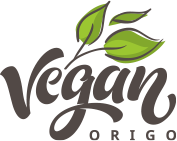
Follow us on: